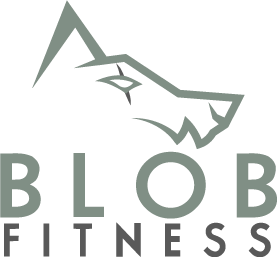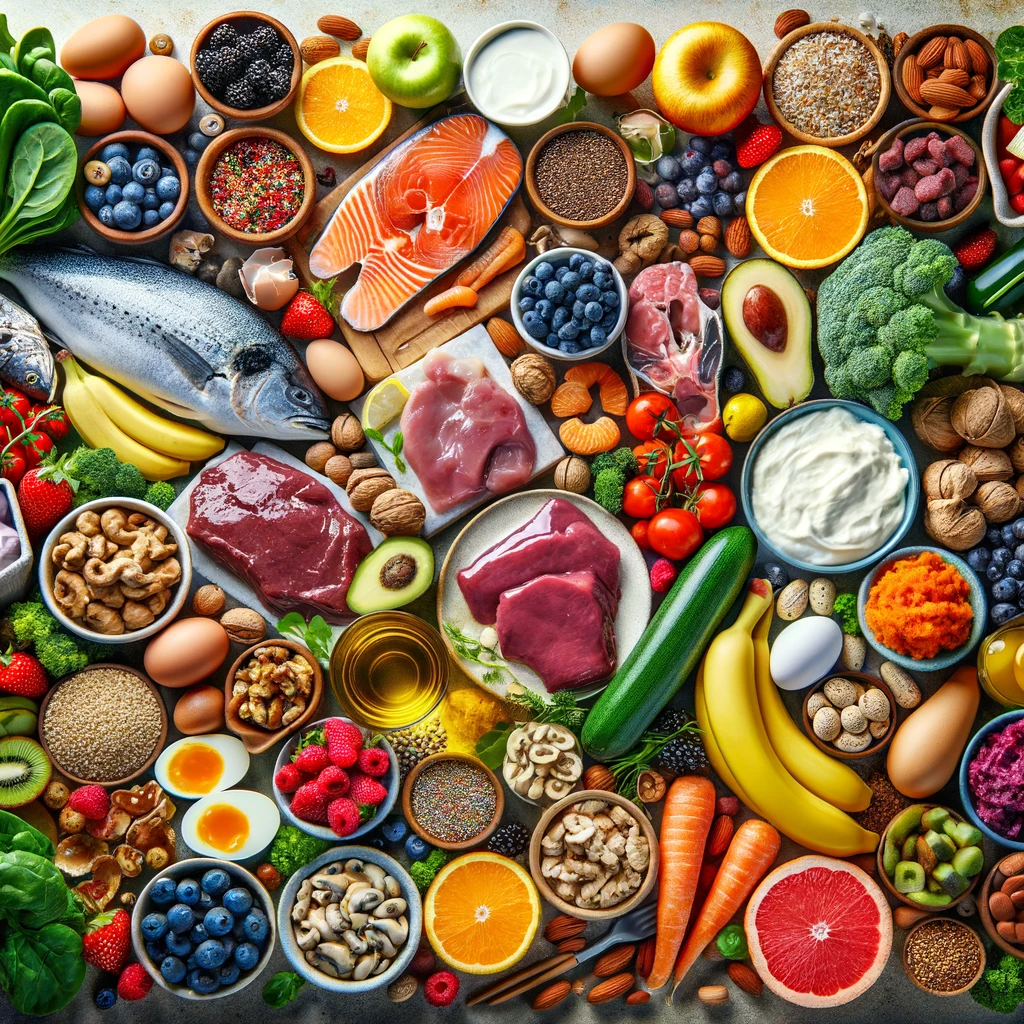
Why are Macros important?
Counting your macros can be one of the most beneficial things you can do and can change your results tremendously.
WHAT ARE MACROS?
Macros or Macro Nutrients, are the categories of what makes up your calorie count. This counts mainly as Protein, Carbohydrates, and Fat. If you look at a nutrition label you'll see that food is broken down by its macronutrients. You'll mainly find protein in meats, carbohydrates in bread and starchy food, and fats in the oil, meats, nuts, or even some fruits like avocados.
When consumed macronutrients react a bit differently from another to supply your body energy.
WHY ARE MACROS IMPORTANT?
So why are macronutrients important to follow? Well, they play a big factor in your results and how you feel on a daily basis. Getting in the proper amount of protein can lead to better recovery and the amount of muscle gained/maintained. Also getting in the proper amount of carbohydrates and fats will affect overall fullness and energy levels. Let’s go over some examples of how following your macros can help your maximize your goals.
For our example we'll be using Christopher Nolan's Bane.

Bane is making it his goal to lose some extra weight. He’s been exercising and has been eating a pretty healthy diet but for some reason is still having a problem losing weight. Bane initially cut carbs from his diet and he was feeling a bit sluggish but the weight was coming off pretty fast. After some time, Bane stopped losing weight and was getting frustrated with his results. Bane then went on a binge and gained a great amount of weight back.
Now this isn’t ever single person’s case, but I see this specific scenario happen way too many times. Most people deprive themselves in one specific category. Once they start to plateau they get frustrated and start to gain the weight right back.
Depriving yourself in one specific category is usually not the best answer. I say usually because depending on certain health issues, something like a low carbohydrate diet may be more beneficial. I’ve done low carb diets plenty of times and it leads to that specific scenario. Just for reference, I’m not saying Low carb diets don’t have its benefits. However, it really depends on your goals and what you’re trying to achieve.
Going back to Bane now.
Bane has decided he’ll be cutting his calories and making sure to calculate his macros accordingly.
For Bane to maintain weight he needs to eat 2100-2300 calories a day. Since Bane wants to lose weight he’ll be cutting his calorie range down to about 1700-1800 calories a day. He’s having 131 grams of protein 130 grams of carbs, and 87 grams of fat per day. Bane follows his diet plan and does his daily exercise. He checks in after a week and notices he’s lost a bit of weight. Not a drastic amount but a healthy and adequate amount. The best part about it? Bane was feeling good the entire week. Bane didn’t feel deprived of foods/nutrients. Banes's energy levels were good and little to no muscle mass was lost. He continues his diet the way it is and slightly cuts back on calories and his macros any time he may have hit a plateau. What’s also great is that the macronutrients above aren’t too strict. Meaning that the most important factor is the amount of protein he took daily. The number of carbs and fats he was in taking could vary depending on how he felt. This allows more wiggle room to fit in foods that you wouldn’t eat on an ordinary diet.
IF YOU FOLLOW YOUR MACROS, YOU CAN STILL HAVE ALL THE FOODS YOU WANT AND LOVE.
Yes you heard me right. If you're counting your macros properly you can still eat all the foods you know and love and still see amazing results!
On my latest cut, I had to consume about 1800 calories a day. I was consuming around 130 grams of protein, 173 grams of carbs, and 65 grams of fat.
My diet looked something like this:
- Morning - Protein Shake and Milk
- Post Work - Protein Shake and Milk
- Lunch - Chicken, and rice with broccoli or quesadilla.
- Snack - Clif Bar or Starbucks Latte
- Dinner - Burger and Fries or Chipotle Bowl
I had to have some of my favorite foods and I never felt truly deprived that I had to binge eat.
The best part about it, I went from 12% body fat to 8.5% body fat and only went down maybe 1 - 1.5 pounds of lean body mass.
Last time I went on a cut and dropped that much body fat I weighed about 112 pounds. Currently my Lean body mass is at 120 pounds and I weigh about 132 pounds.
You can achieve great and superior results if you follow your macros appropriately. If you're on a cut, you can manage to decrease the amount of muscle you lose, and still lose weight without feeling like you're depriving yourself.
If you're in bulk and trying to gain weight, you can gain an optimal amount of muscle and limit how much fat you're gaining and better recovery time.
BREAKING DOWN MACROS
Macros are broken down into Protein, Fat, and Carbohydrates. Each macronutrient acts a bit differently and how it makes you feel and your body responds to it.
CARBOHYDRATES
Carbohydrates are mainly sugar and starch. However, Fiber is also a carbohydrate and one of the most important forms of carbohydrates.
Carbs are mainly sugar and are usually the first thing your body breaks down in your body. Did you ever realize that you can have a whole can of soda (which has 150 calories and is made up of all sugar which is 41 grams of carbs) and still not really be satisfied after about an hour? However, if you had 41 grams of the worth of beans, vegetables, or oatmeal you'll be full for a good amount of time. Fiber (Soluble) actually binds to cholesterol and sugar which slows down carbohydrate digestion. Fiber also helps with stabilizing your blood sugar levels and protect against heart disease. Carbohydrates are broken into 4 calories per gram.
Oh here comes Bane giving us a tip...
PROTEIN
Protein is possibly one of the most important macronutrients. Protein is responsible for building, restoring, and maintaining muscle. It’s also responsible for creating healthy blood cells, enzymes, hormones, and much more. Protein is made up of amino acids. There are 2 categories of amino acids, essential amino acids, and nonessential amino acids. Essential amino acids can’t be made by the human body. You can only get them from food. Non-essential amino acids can be made by the human body. Taking low amounts of protein can lead to muscle loss, weakness, the possibility of getting sick more often. On the other hand, taking too much protein can be broken down into sugar and can lead to weight gain. The recommended amount of protein to make sure you’re not in a deficient is 0.8 grams per kg or 0.36 grams per pound. For someone who works out regularly you want around 1.5-2.0 grams per kg or 0.65-1 gram per pound. Protein is broken into 4 calories per gram.
FAT
Fat has to be one of the most confusing macronutrients. Let’s get this out the way first, fat is not bad. Also fat does not make you fat. Unless you know… you consume way too much of it and you’re going into a calorie surplus. Anyway, there are healthy fats and unhealthy fats. Unhealthy fats are Saturated fats and Trans fat. Healthy fats are monounsaturated fats, polyunsaturated fats. Saturated fats can raise cholesterol or LDL (Low-density lipoprotein) levels. This can lead to heart disease and other health risks. You can find saturated fats in foods that contain dairy or meat. Trans fat is worse than saturated fat in the fact that it raises your LDL (bad cholesterol) and lowers your good cholesterol or HDL (High-density lipoprotein). Trans fat is usually found in baked foods, fried foods, and oils. Now onto the good fats! Monounsaturated fats as you can imagine does just the opposite of trans fat and saturated fat. It raises your HDL levels and helps lower your HDL. This lowers risks for heart disease and cholesterol. You can find monounsaturated fats in foods like olive oil, nuts, and avocados. Polyunsaturated fats include omega-3 and omega-6 fatty acids. Polyunsaturated fats can help reduce blood pressure, lower triglycerides, and improve blood vessel functionality, lower LDL, and raise HDL. You can find polyunsaturated fats in foods like flax seeds, salmon, tuna, and tofu.
FINAL THOUGHTS
To summarize everything, counting and keeping track of your macronutrients can lead to better results, higher energy, and a possible healthier lifestyle. Most people deprive themselves of one certain macronutrient category and find worse results and it leads them to frustration like Bane. Counting macros usually eliminates these issues and gives you more freedom in the foods you eat and allows for you to continue on with your goals without feeling deprived or having to binge. Be on the lookout for more articles about subtopics going more in-depth with each macronutrient and more benefits of counting macros.
REFERENCES
Siri-Tarino PW, Sun Q, Hu FB, Krauss RM. Saturated Fatty Acids and Risk of Coronary Heart Disease: Modulation by Replacement Nutrients. Current Atherosclerosis Reports. 2010;12(6):384-390. doi:10.1007/s11883-010-0131-6.
Lattimer JM, Haub MD. Effects of Dietary Fiber and Its Components on Metabolic Health. Nutrients. 2010;2(12):1266-1289. doi:10.3390/nu2121266.
Dashti HM, Mathew TC, Hussein T, et al. Long-term effects of a ketogenic diet in obese patients. Experimental & Clinical Cardiology. 2004;9(3):200-205.
Get a Free Guide!
Similar Posts
This article on dieting myths debunked will help you understand the main myths to avoid for clarity on your dieting journey.
This article discusses the importance and how to create a nutrient dense diet, rich in vitamins, minerals, and antioxidants, boosts health and vitality.
Explore the crucial interplay of Vitamin D3, Magnesium, and K2 for optimal health, and learn how these nutrients enhance bone, heart, and immune health.



